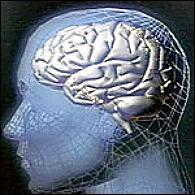2006年VOA标准英语-Study Finds That Brain Exercises Help Memory
搜索关注在线英语听力室公众号:tingroom,领取免费英语资料大礼包。
(单词翻译)
By David McAlary
Washington
19 December 2006
As we get older, most of us will have more difficulty remembering things, like phone numbers, grocery lists, and most importantly, when to take medications. But a new study shows that mental training for elderly people can help them function better in their daily lives. VOA's David McAlary reports.
 |
This is a trainer teaching a group of elderly women strategies to help them remember things like lists better. Psychologist Sherry Willis says the goal is to help them maintain mental, or cognitive1 skills. "We focused on three abilities: memory, reasoning and speed of processing."
Dr. Willis and her colleagues at Pennsylvania State University and five other U.S. sites studied nearly 3,000 elderly people who lived independently and did not have dementia. Some got 10 one-hour training sessions over six weeks while others got no training at all. "Immediately after training, individuals who were trained on memory or individuals who were trained on reasoning or speed showed significantly higher performance than those who received no training," she said.
But even better, much of that benefit held up for five years after the training. Willis' team reports in the Journal of the American Medical Association that people who got the training also felt better about how well they functioned in their daily activities. "Older adults really can continue to exercise mentally and to improve their cognitive abilities. But it does take work. It's just like physical exercise, you have to do it consistently and diligently," he said.
Strong mental abilities mean people can take better care of themselves, by remembering their medications, for example. Eighty-year-old Pauline Lopez had trouble remembering phone numbers until she was in the study and had the memory training. "I do remember phone numbers much more readily right now. I don't know what's happened but I see them one time, then I remember them, and I remember directions better than I had before," she said.
She took that memory training in 1999 and says it continues to help her.
In an editorial accompanying the study, Wake Forest University psychologist Sally Shumaker and colleagues say cognitive training programs may give individuals a greater sense of control over their mental lives and have a beneficial effect on the quality of their lives.
They add that such mind exercises provide another type of intervention2 for people with the form of dementia called Alzheimer's disease who cannot tolerate existing drugs for the condition.
Dr. Sherry Willis at Pennsylvania State University says the best way to exercise your mind is to find activities you like, such as crossword3 puzzles or crafts, but be sure to keep challenging yourself. "Don't do the same activity over and over in a routinized manner. One must continually seek more challenging tasks so that your mind is exercised," she said.




